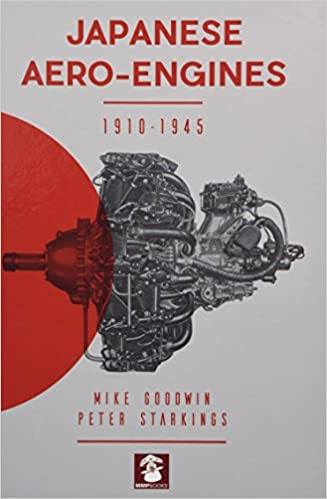Wright R-2600 Twin Cyclone
The Wright R-2600 Cyclone 14 (also called Twin Cyclone) was an American radial engine developed by Curtiss-Wright and widely used in aircraft in the 1930s and 1940s.
Operational History
In 1935, Curtiss-Wright began work on a more powerful version of their successful R-1820 Cyclone 9. The result was the R-2600 Twin Cyclone, with 14 cylinders arranged in two rows. The 1,600 hp (1,200 kW; 1,600 PS) R-2600-3 was originally intended for the C-46 Commando (being fitted to the prototype CW-20A). It was also the original engine choice for the F6F Hellcat; a running change (one which would not stop production) for the CW-20A, and one in late April 1942 for the second XF6F-1, led to the adoption of the 2,000 hp (1,500 kW; 2,000 PS) Pratt & Whitney R-2800 Double Wasp in the R-2600's place for both designs. The Twin Cyclone went on to power several important American World War II aircraft, including the A-20 Havoc, B-25 Mitchell, TBF Avenger, SB2C Helldiver, and the PBM Mariner. Over 50,000 R-2600s were built at plants in Paterson, New Jersey, and Cincinnati, Ohio.
General characteristics: (GR-2600-C14BB)
Components
Performance
In 1935, Curtiss-Wright began work on a more powerful version of their successful R-1820 Cyclone 9. The result was the R-2600 Twin Cyclone, with 14 cylinders arranged in two rows. The 1,600 hp (1,200 kW; 1,600 PS) R-2600-3 was originally intended for the C-46 Commando (being fitted to the prototype CW-20A). It was also the original engine choice for the F6F Hellcat; a running change (one which would not stop production) for the CW-20A, and one in late April 1942 for the second XF6F-1, led to the adoption of the 2,000 hp (1,500 kW; 2,000 PS) Pratt & Whitney R-2800 Double Wasp in the R-2600's place for both designs. The Twin Cyclone went on to power several important American World War II aircraft, including the A-20 Havoc, B-25 Mitchell, TBF Avenger, SB2C Helldiver, and the PBM Mariner. Over 50,000 R-2600s were built at plants in Paterson, New Jersey, and Cincinnati, Ohio.
General characteristics: (GR-2600-C14BB)
- Type: 14-cylinder supercharged air-cooled two-row radial engine
- Bore: 6 1⁄8 in (155.6 mm)
- Stroke: 6 5⁄16 in (160.3 mm)
- Displacement: 2,604 in3 (42.7 L) L
- ength: 62.06 in (1,576 mm)
- Diameter: 55 in (1,397 mm)
- Dry weight: 2,045 lb (930 kg)
Components
- Valvetrain: Two pushrod-actuated valves per cylinder with sodium-cooled exhaust valve
- Supercharger: Single-stage two-speed centrifugal type supercharger, impeller diameter 11 in (280 mm), blower ratio 7.06:1 at slow speed and 10.06:1 at high speed
- Fuel system: Stromberg PR48A downdraft carburetor with automatic mixture control
- Oil system: Dry sump with one pressure pump and two scavenge pumps
- Cooling system: Air-cooled
Performance
- Power output:
- 1,750 hp (1,305 kW) at 2,600 rpm at 3,200 ft (975 m) military power
- 1,450 hp (1,080 kW) at 2,600 rpm at 15,000 ft (4,575 m) military power
- Specific power: 0.67 hp/in³ (30.6 kW/L)
- Compression ratio: 6.9:1
- Power-to-weight ratio: 0.86 hp/lb (1.40 kW/kg)
Source(s):
Wikipedia
Gunston, Bill (2006). World Encyclopedia of Aero Engines: From the Pioneers to the Present Day (5th ed.). Stroud, UK: Sutton. ISBN 0-7509-4479-X.
Wikipedia
Gunston, Bill (2006). World Encyclopedia of Aero Engines: From the Pioneers to the Present Day (5th ed.). Stroud, UK: Sutton. ISBN 0-7509-4479-X.






